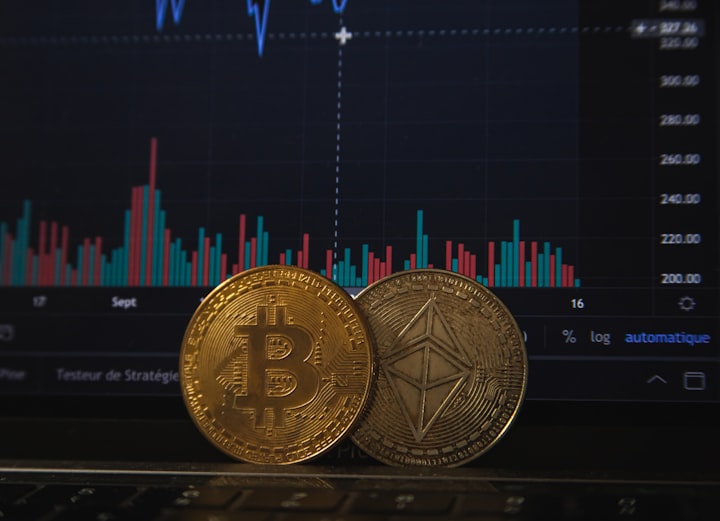Crypto and NFT Revolution
Unlocking the Potential of Digital Assets

In recent years, the world has witnessed a revolutionary shift in the way we perceive and interact with assets. The emergence of cryptocurrencies and Non-Fungible Tokens (NFTs) has opened up a new realm of possibilities, transforming the landscape of digital ownership and creating a buzz that has captivated enthusiasts and skeptics alike. This article will delve into the concept of cryptocurrencies, NFTs, and their potential to reshape industries and empower creators in unprecedented ways.
Cryptocurrencies, such as Bitcoin and Ethereum, have disrupted traditional financial systems by introducing decentralized digital currencies. They operate on blockchain technology, a secure and transparent ledger that enables peer-to-peer transactions without the need for intermediaries like banks. This decentralization eliminates the limitations of geographical boundaries and allows for faster, more efficient, and secure transactions.
One of the significant advantages of cryptocurrencies lies in their potential to democratize financial access. They provide individuals in underserved communities with a means to store and transfer value, bypassing traditional banking systems. Additionally, cryptocurrencies offer protection against inflation and government interference, granting users more control over their financial assets.
While cryptocurrencies have gained widespread attention, it is the rise of NFTs that has sparked a frenzy of excitement in the art, music, and collectibles world. NFTs are unique digital assets that utilize blockchain technology to verify authenticity and ownership. Unlike cryptocurrencies, which are fungible and interchangeable, NFTs represent one-of-a-kind digital items, making them highly sought after by collectors and enthusiasts.
NFTs have unlocked a new paradigm for creators, enabling them to monetize digital content that was previously undervalued or difficult to protect from piracy. Artists, musicians, and content creators can now sell and distribute their work directly to collectors, retaining more control over their creations and receiving royalties on subsequent sales. This has the potential to revolutionize the creative industry, empowering artists and reshaping the traditional art market.
he impact of cryptocurrencies and NFTs extends beyond the realms of finance and art. Various industries, including gaming, real estate, and even governance, are exploring the potential applications of these technologies.
In the gaming industry, NFTs are being used to introduce unique in-game items, character skins, and virtual real estate. Players can purchase, trade, and collect these digital assets, blurring the lines between the virtual and physical worlds. NFTs also provide a way for game developers to reward players for their achievements and foster a thriving in-game economy.
Real estate is another sector that stands to benefit from the blockchain revolution. Through tokenization, property ownership can be divided into digital shares, allowing for fractional ownership and making real estate investments more accessible to a broader range of individuals. Additionally, the use of smart contracts in real estate transactions can streamline processes and reduce the need for intermediaries, leading to faster and more efficient deals.
Governments and policymakers are also exploring the potential of blockchain technology for secure and transparent voting systems, digital identities, and supply chain management. The decentralized nature of blockchain ensures data integrity and reduces the risk of fraud, making it an attractive solution for governments seeking to enhance transparency and trust
While the crypto and NFT revolution holds immense potential, it is not without its challenges and considerations. Energy consumption and the environmental impact of blockchain mining have raised concerns. As cryptocurrencies gain popularity, the demand for computational power to validate transactions increases, resulting in significant energy consumption. However, efforts are being made to develop more sustainable solutions, such as transitioning to proof-of-stake consensus algorithms.
Another challenge lies in ensuring the protection of intellectual property rights and preventing fraud in the NFT space. Due diligence is necessary to verify the authenticity and originality of digital assets before purchase. Artists and creators must be vigilant in protecting their work from unauthorized duplication or plagiarism.
The rise of cryptocurrencies and NFTs marks a pivotal moment in our digital era. These technologies hold the power to democratize finance, empower creators, and reshape industries. From revolutionizing the way we transact and invest to transforming the art market and enhancing the gaming experience, cryptocurrencies and NFTs have unlocked a world of possibilities.
As we navigate this new landscape, it is important to remain aware of the challenges and considerations associated with these technologies. By addressing these concerns and embracing the potential for positive change, we can harness the power of crypto and NFTs to unlock a future where digital assets become integral parts of our lives and economies.





Comments
There are no comments for this story
Be the first to respond and start the conversation.